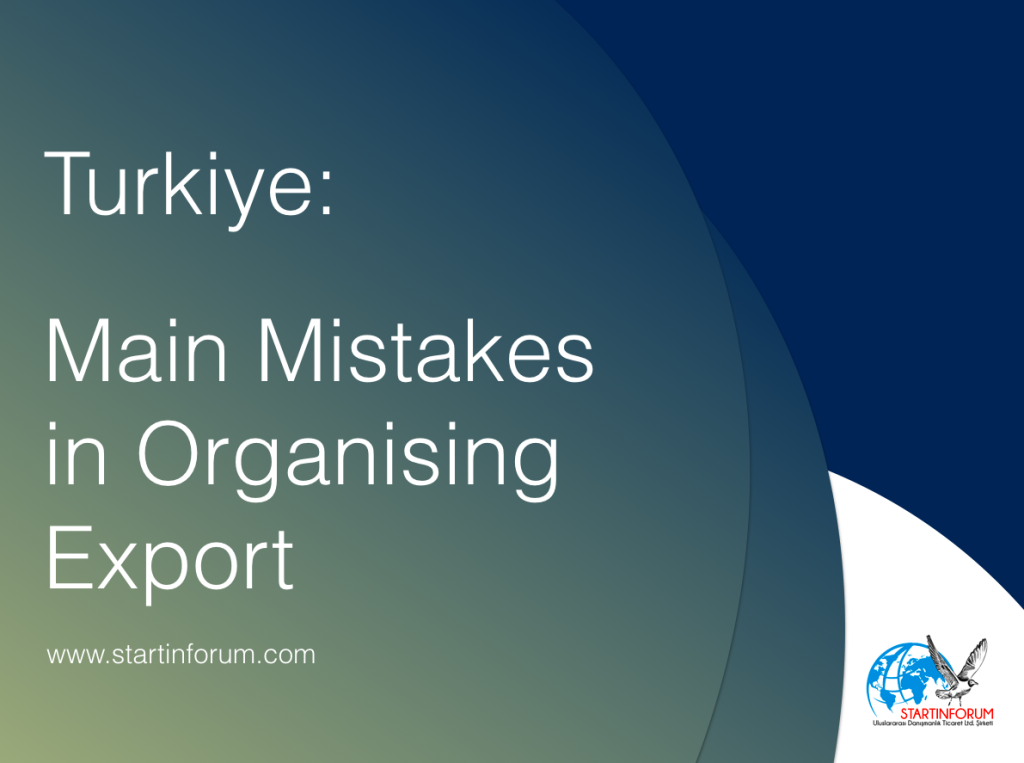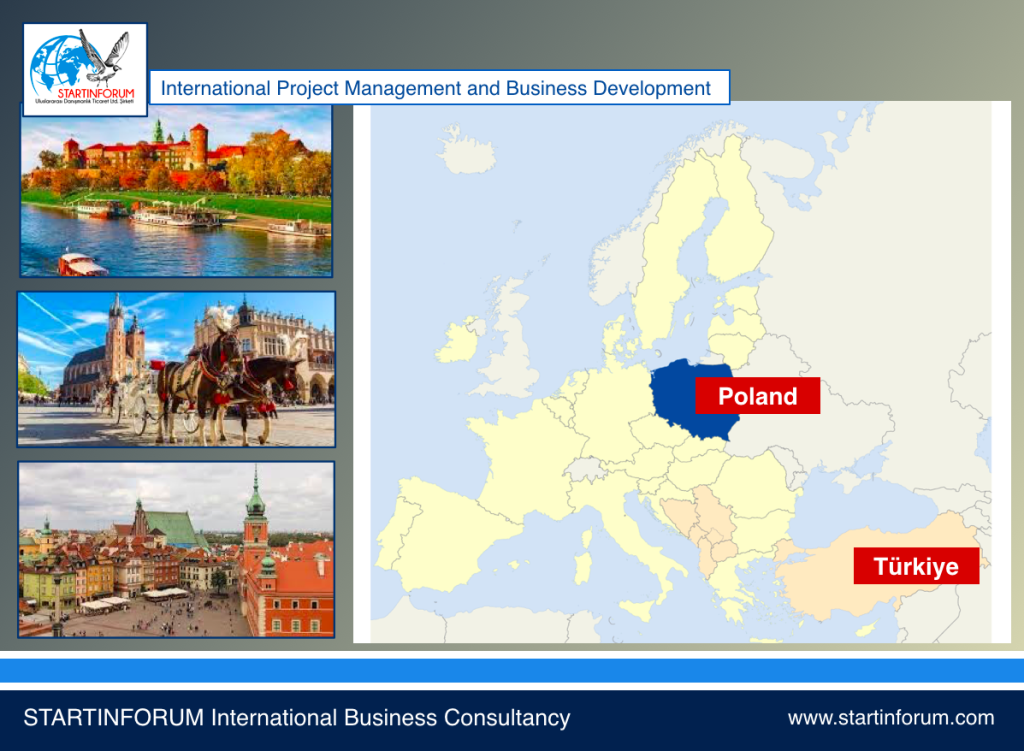Exporters from Turkey, especially novices, often face a range of challenges and make common mistakes that can hinder their success. These issues can stem from a lack of experience, insufficient research, or external economic factors.
Here are the main mistakes and challenges faced by Turkish exporters.

I. Lack of Thorough Preparation & Market Research
- Insufficient Market Research: This is arguably the most fundamental mistake. Exporters often:
- Fail to identify genuine demand for their product in target markets.
- Don’t fully understand customer preferences, local tastes, or cultural nuances.
- Neglect to thoroughly research competitors (local and international) and their pricing strategies.
- Don’t factor in local distribution channels and how their product will fit in.
- Not Understanding Target Market Regulations & Standards:
- Failure to obtain correct certifications: Many products require specific certifications (e.g., CE marking for Europe, Halal certification) or health/phytosanitary certificates. Not having these leads to goods being held at customs, fines, or rejection.
- Ignoring local import duties and taxes (VAT): Underestimating the total cost to the buyer (DDP – Delivered Duty Paid) can make their product uncompetitive.
- Incorrect commodity codes (HS codes): Using the wrong 10-digit HS code can lead to higher duties, fines, or delays.
- Non-compliance with labeling and packaging rules: Different countries have specific requirements for product information, language, and packaging materials.
- Inadequate Due Diligence on Buyers: Especially for payment methods other than cash in advance or confirmed Letter of Credit, Turkish exporters might not thoroughly vet their international buyers’ creditworthiness or reliability, leading to payment delays or defaults.
II. Operational & Logistical Errors
- Incomplete or Inaccurate Documentation: This is a recurring problem. Missing or incorrect documents like commercial invoices, packing lists, bills of lading/air waybills, or certificates of origin are a primary cause of customs delays, extra shipping costs, and even cargo disputes or seizures.
- Underestimating Total Costs: New exporters often focus only on product cost and main logistics. They fail to account for “hidden” costs such as:
- Banking fees, insurance.
- Customs examination fees, warehouse costs at destination.
- Cost of potential returns, defective products.
- Marketing and e-commerce marketplace fees (if applicable).
- Poor Logistics Management & Unreliable Transportation:
- Not choosing the most suitable or safest transportation method for their product and destination (e.g., trying to use sea freight for a time-sensitive, high-value product).
- Working with unreliable freight forwarders who lack experience in specific routes or with certain types of goods.
- Ignoring insurance coverage for shipments against loss, damage, or theft.
- Substandard Quality Control: Assuming the producer understands all requirements or that defects can simply be shipped back to the supplier is a costly mistake. Lack of proper quality inspection before shipment can lead to dissatisfied customers, damaged reputation, and costly returns or discounts.
III. Financial & Economic Vulnerabilities
- Vulnerability to Currency Fluctuations: With the Turkish Lira’s volatility, exporters may not adequately hedge against currency risks, eroding their profit margins if the Lira depreciates significantly against their foreign currency revenue.
- High Input Costs & Low Productivity: Turkish industries, particularly labor-intensive ones like textiles and apparel, face increasing input costs (labor, energy) and can struggle with lower productivity compared to competitors in East Asia or North Africa, making Turkish products less price-competitive.
- Financing Challenges: High interest rates and financing costs in Turkey can make it difficult for exporters to access working capital or secure competitive loans, especially for SMEs.
IV. Strategic & Market-Related Weaknesses
- Over-reliance on Traditional Markets (e.g., EU): While Europe is a crucial market, over-dependence can be risky if demand there slows down. Not diversifying into new, growing markets (e.g., Africa, Central Asia, other emerging economies) can limit growth potential.
- Insufficient Value-Added Products: Turkey’s export structure still leans heavily on labor-intensive and capital-intensive goods. There’s a recognized weakness in exporting high-tech, innovation, and R&D-oriented products with high added value, which are key for long-term competitiveness.
- Lack of Branding and IP Protection: Neglecting to register trademarks or protect intellectual property in target markets can lead to imitation and loss of market share.
- Communication Barriers & Cultural Misunderstandings: Even with good English, nuances in communication and cultural differences can lead to misunderstandings with partners, distributors, or customers, affecting relationships and business outcomes.
- Not Leveraging Government Support & Incentives: Some exporters might not be fully aware of or effectively utilize the various support programs, loans, and credit insurances offered by Türk Eximbank and the Ministry of Trade.
To overcome these challenges, Turkish exporters, particularly novices, must prioritize thorough research, meticulous planning, risk management, continuous learning, and seeking professional advice from customs brokers, trade consultants, and legal experts.
For more guidance and recommendations for your business to enter the international market with your products and services, please feel free to contact us.


